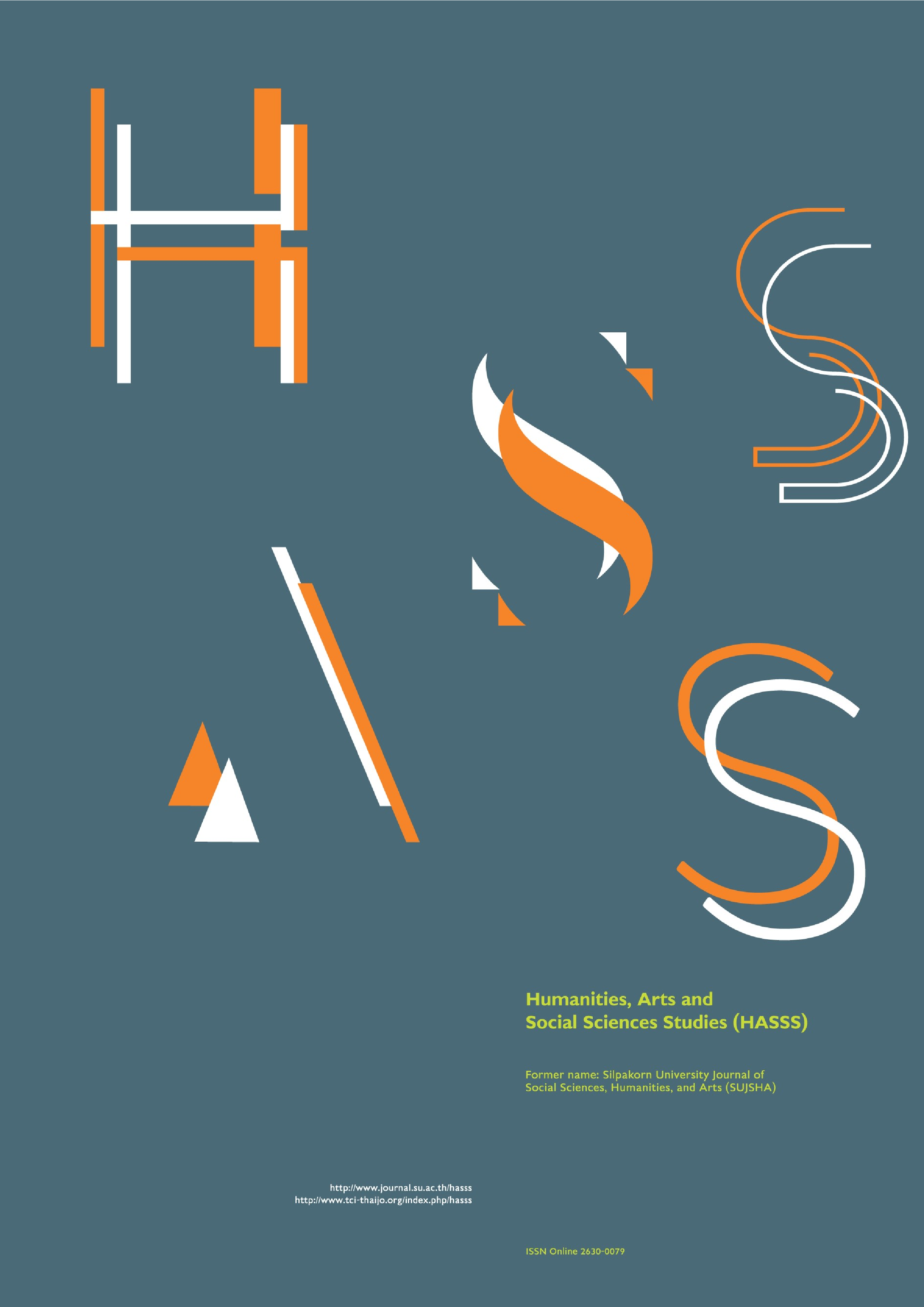Transmission guideline of Thai traditional-craftsmanship in the digital age
Main Article Content
Abstract
From the past to the present, traditional craftsmanship has been adapted and developed according to the era through the continuous transfer of wisdom from generation to generation. Such transfer of wisdom includes the body of knowledge about various techniques and the value of exquisite beauty. However, if the development is focusing only on the products of the original craftsmen but not also on the creation of consumer groups and the means to present the traditional craftsmen work to suit the lifestyle of modern time, the craftsmanship will not be accessible and tangible to the people. Therefore, another interesting way to extend local wisdom is to create activities for learning and real practices. This article aims to study the approach for transmission of Thai traditional craftsmanship in the digital age. The study results reveal that the transmission of Thai traditional craftsmanship is divided into 4 methods as follows: (1) model development, (2) materials development, (3) tools development, and (4) production and marketing system development. All four methods must be developed together. Also, the study results of the trend of the general consumer behavior in the digital age revealed the following behaviors: (1) the increasing focus on the importance of the people who came in direct contact or experiences at present resulting in the longing for a deep and meaningful relationship, (2) the concept of self-acceptance which is different and more unique resulting in the more importance given to individual persons, and (3) the increasing realization of personal data security.
Downloads
Article Details

This work is licensed under a Creative Commons Attribution-NonCommercial-NoDerivatives 4.0 International License.
All rights reserved. Apart from citations for the purposes of research, private study, or criticism and review,no part of this publication may be reproduced, stored or transmitted in any other form without prior written permission by the publisher.
References
Boonthong, S. (2018). The Study of Renewable Materials of Talcum Mold. Bangkok: Thai Traditional Art Department, Poh-Chang Academy of Arts Official, Rajamangala University of Technology Rattanakosin. [in Thai]
Brandbuffet. (2018). Understanding the Thai Consumers in the 2019 Era and the Marketing Strategies that Must Be Learned. When the Original Standard Posture Cannot Win the Heart Anymore. [Online URL: www.brandbuffet.in.th/2018/12/2019-thai-consumer-insight-and-marketing-Strategy] accessed on May 25, 2019.
Department of Cultural Promotion. (2016). Thai Traditional Craftsmanship: National Cultural Heritage. Bangkok: The War Veterans Organization of Thailand Under Royal Patronage. [in Thai]
Morby, A. (2018). Craft Will Become Fundamental in Design, Says Jonathan Anderson. [Online URL: www.dezeen.com/2018/02/12/craft-resurgence-reaction-period-non-reality-jw-anderson-loewe craft-prize] accessed on May 23, 2019.
Nakkong, A. (2000). Thai Traditional Art Teaching Documentation. Bangkok: (n.p). [in Thai]
Phra Dhammapitaka (P. A. Payutto). (1994). Transmission Thai Cultural heritage into the Basis Actual Education. Bangkok: Buddha Dhumma Foundation Press. [in Thai]
Sakkhajonyod, P. (2019). Thai Craft Studio (Thai Art Is Easy). [Online URL: www.craftnroll.net/talks/thai-craft-studio] accessed on May 24, 2019. [in Thai]
SME Thailand. (2017). Workshop Studio Business to Make Money in an Era When People Like to Find Themselves. [Online URL: www.smethailandclub.com/entrepreneur-1935-id.html] accessed on May 24, 2019. [in Thai]
Thailand Creative and Design Center. (2015). Digital Venture in Contemporary Crafts. [Online URL: www.tcdc.or.th/articles/others/22338/#Digital-Venture-in-Contemporary-Craft] accessed on May 25, 2019. [in Thai]
Thosakul, T. (2017). Industrial Arts and the Innovation of Khon mask Production. Mekong-Salween Civilization Studies Journal 8(1): 71-108. [in Thai]


